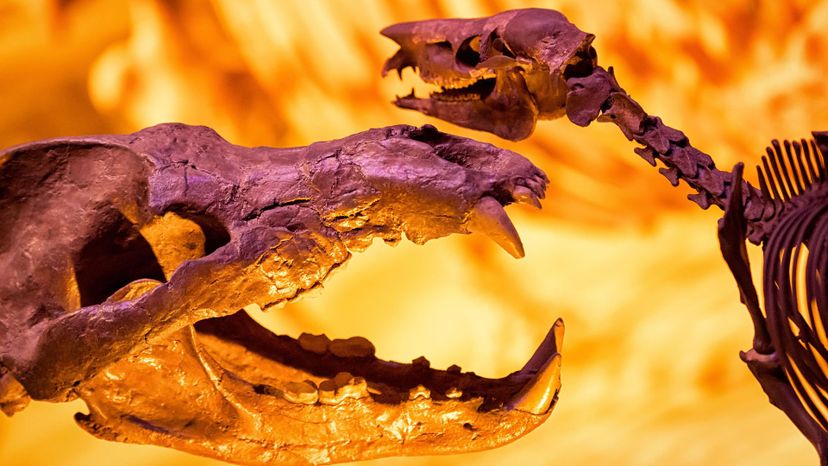
About This Quiz
Can you tell the difference between a turtle and a leaf, or a dinosaur and a tiger? Sounds easy, right? But what if you were trying to tell these things apart using only their remains -- their very, very, very old remains? When a living thing passes on, they leave behind physical remains in the form of flesh, bones, hair or shells. Over time, and under the right conditions, these remains can be preserved by the forces of Mother Nature herself, resulting in a physical record of a life lived long ago.
Of course, this process, known as fossilization, doesn't happen overnight; in fact, for an object to be considered a fossil, it must be at least 10,000 years old, and some of the oldest known fossils date back 4 billion years or more! These fossils can range from bacteria that's too small to see with the naked eye to enormous dinosaurs -- like the mighty T-Rex you might see in a Natural History Museum. Some are formed from hardened bone or shells, while others are mere imprints or casts, and still others are preserved in amber, oil or petrified wood.
These fossils provide valuable clues to the past, and are revered by geologists, paleontologists, zoologists and other scientists. Fossilized remains are so exciting that even remnants of bodily waste -- think poo from a dinosaur or ancient mammals -- are carefully preserved and examined by those in the scientific community. If we show you a picture of a fossil, do you think you can identify what it used to be? Take our quiz to find out!
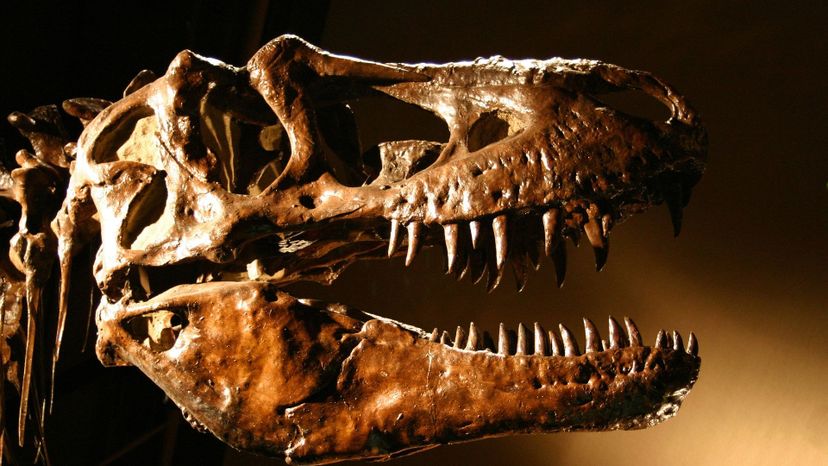
Named for the person who unearthed her from the soil, Sue the T-Rex is one of the most impressive and complete dinosaur fossils ever discovered. She was 28 years old when she died, sometime around 67 million years ago. You can check out this 40-foot-tall fossil at The Field Museum in Chicago.
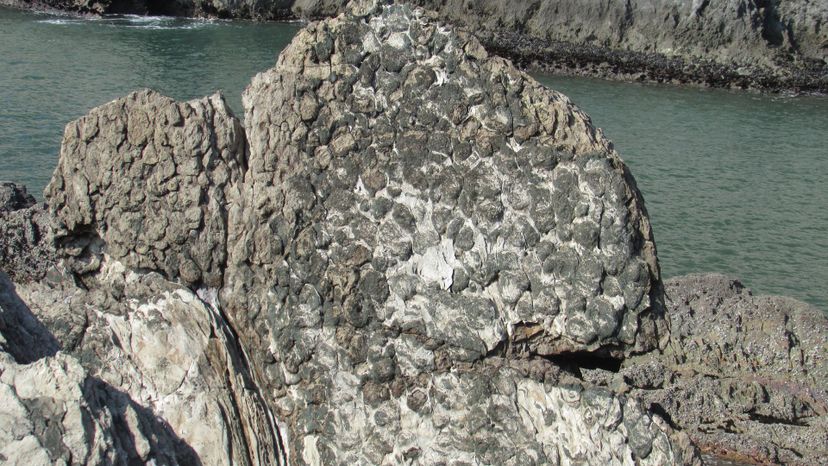
Seaweed makes up some of the oldest known plant fossils. Along with other marine algae, seaweed is the oldest known fossilized example of multi-cell life, and scientists have unearthed examples dating back 550 million years.
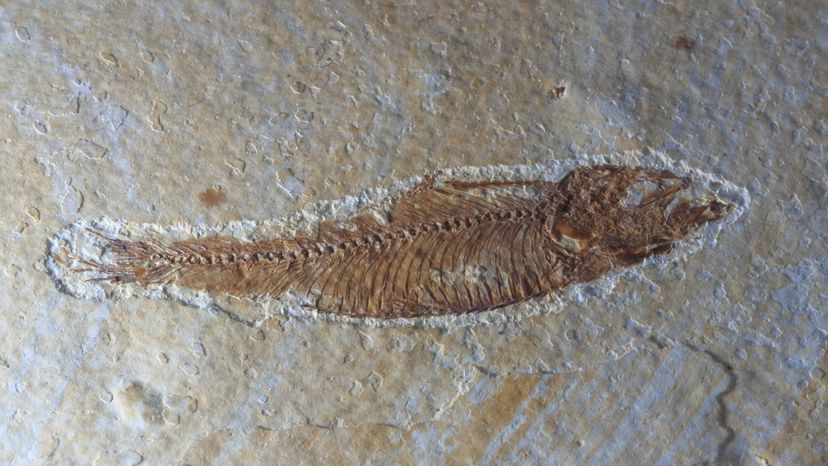
It might look a lot like a worm, but this metaspriggina fossil is actually the oldest known fish fossil. Dated to around 518 million years ago, this worm-like critter had gills and eyes, and represents an important step in the evolution of the fish.
Advertisement
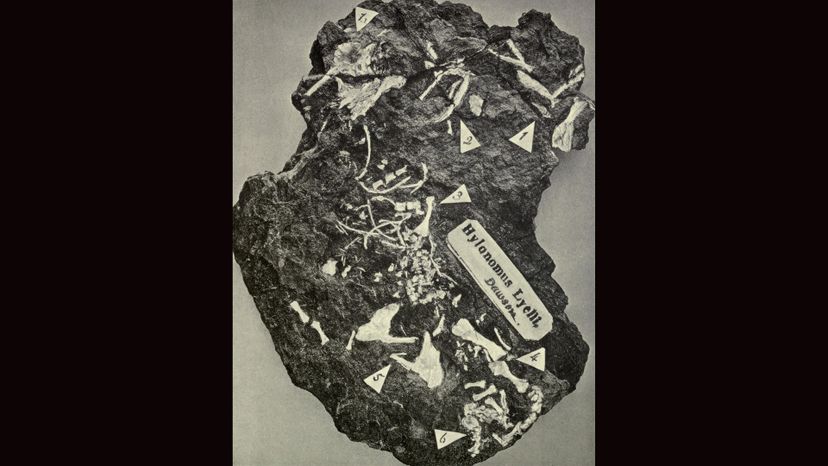
This fossil of hylononus lyelli -- that's a lizard -- is the oldest known reptile fossil that scientists are completely sure is actually a reptile. It dates back around 312 million years, and is one of the first known animals that is clearly adapted to life on land rather than water.
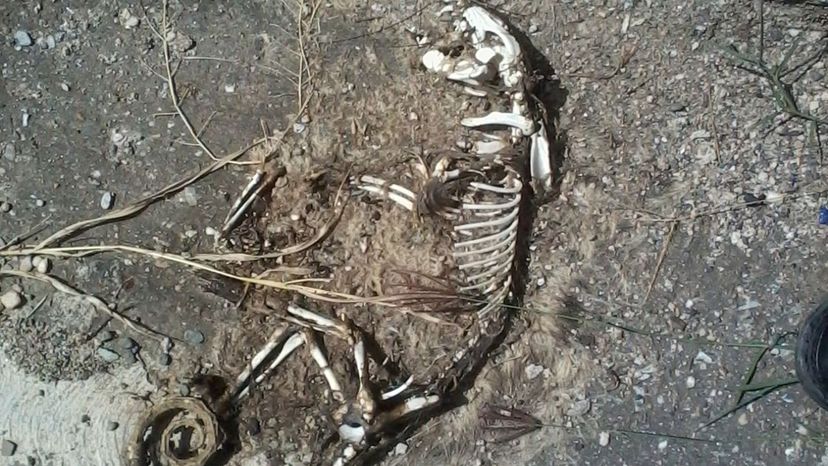
Discovered in China in 2011, this fossil is an example of juramale sinesis. Dating back to the Jurassic period, it's a rodent-like animal called a shrew, and is one of the earliest known fossils of a mammal.
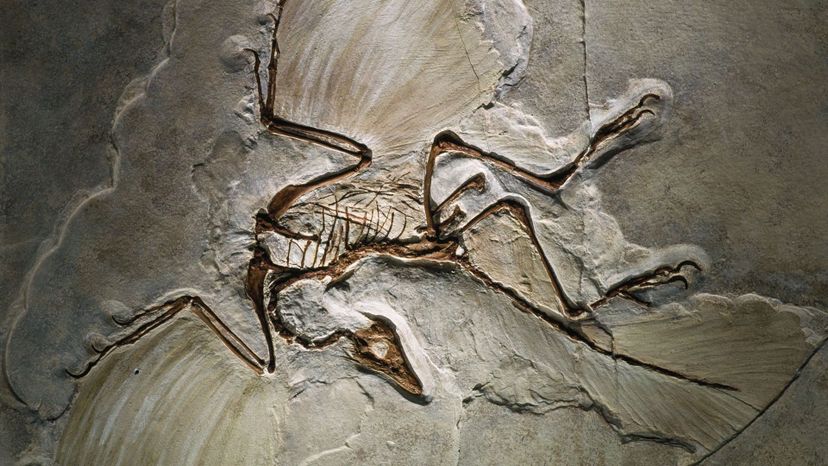
Archaeopteryx was discovered in 1860 in Germany. It dates back around 150 million years to the late Jurassic era. The creature is about the size of a raven, and is an early example of a bird.
Advertisement
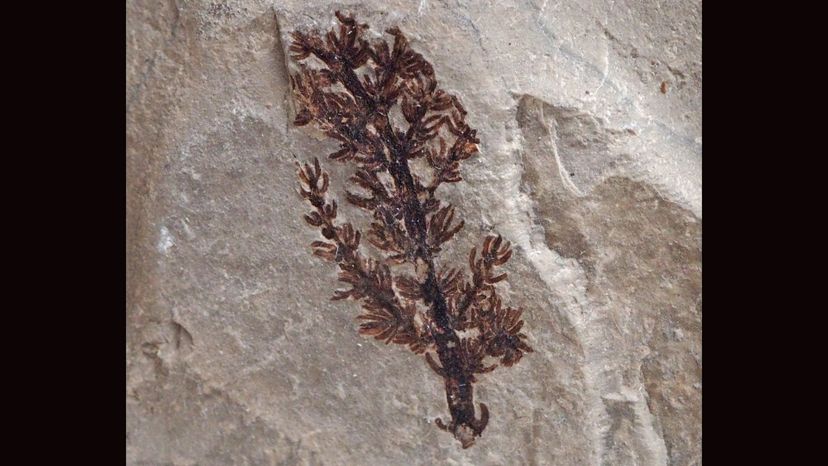
Officially known as montsechia vidalli, this fossil is one of the earliest known flowering plants. Today it might look like a weed -- but for a 125 year old plant, it's beautiful to science lovers.
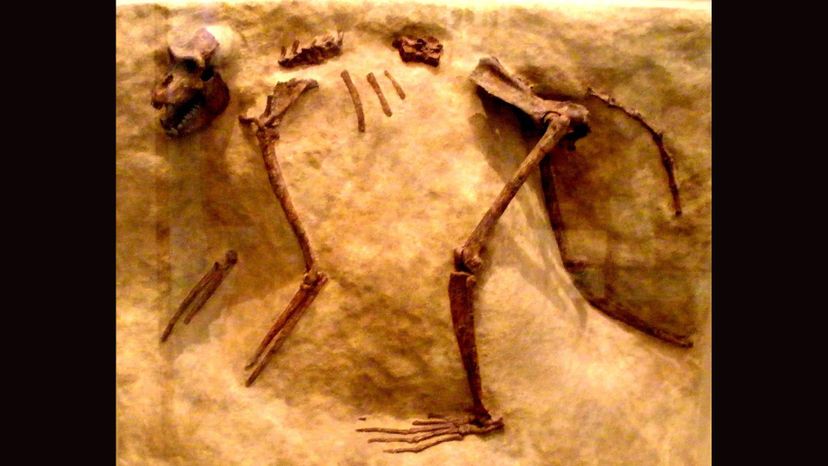
In 2002, scientists in China discovered the fossil of a small, long-tailed monkey that they named archicebus achilles. It's one of the earliest primate fossils ever found, and dates back around 55 million years.
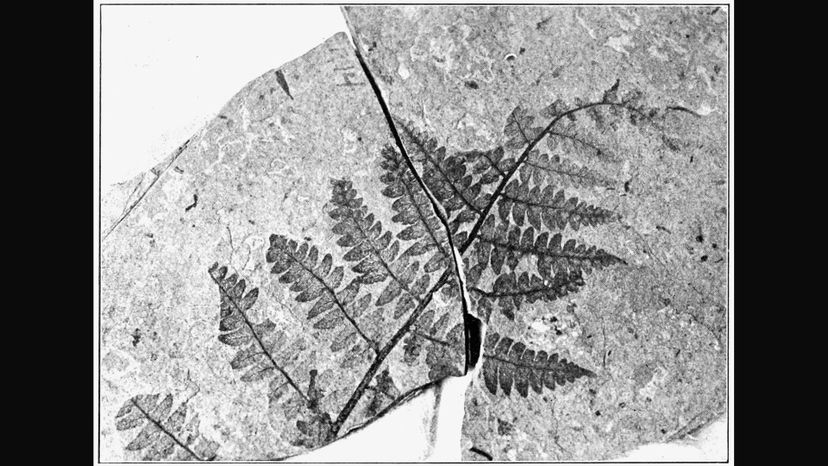
Fern fossils are surprisingly common thanks to the moist forest areas where they grow. The oldest examples of this plant are dated around 360 million years old.
Advertisement
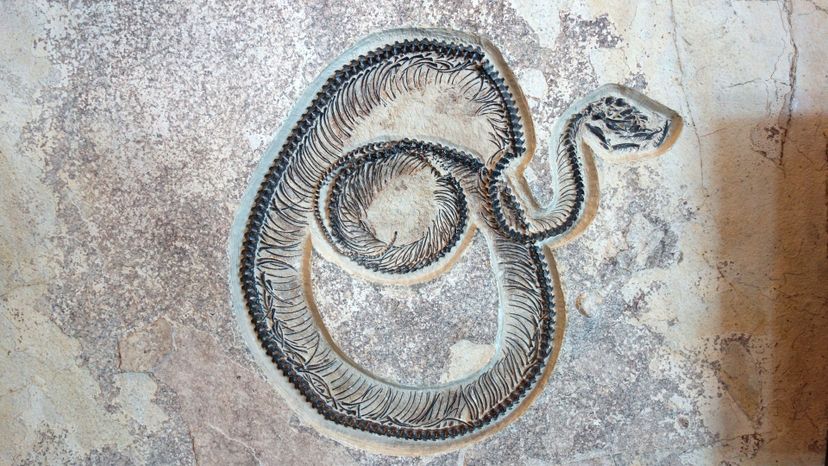
In 2018, scientists in Myanmar discovered the oldest known fossilized snake. Named xiaophis myanmarensis, it's around 99 million years old. This discovery was particularly important because it revealed that snakes moved from water to land years earlier than scientists originally theorized.
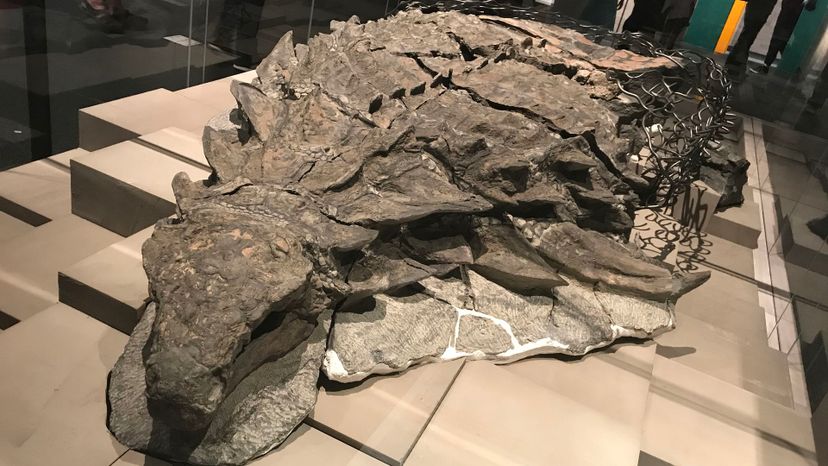
Discovered in Canada in 2011, the nodosaur is an amazing dinosaur that lived 110 million years ago. This plant-eater is around 18-feet long and has spikes, armor and a camouflaged pattern that likely helped keep it safe from predators.
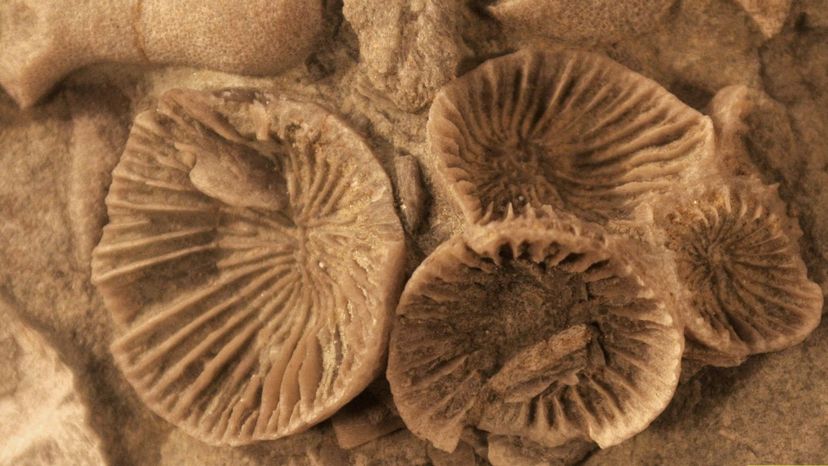
While small fungus fossils are common, larger ones are rare because fungi by nature don't tend to fossilize well - they're just too squishy and delicate. The oldest examples of fossilized fungus were found in 2017 in South Africa, and date back around 2.4 billion years.
Advertisement
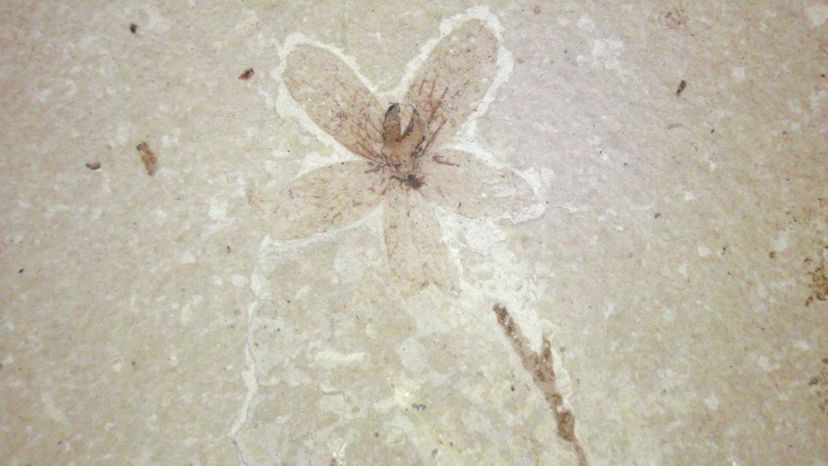
In 2002, scientists in Patagonia found the fossil of a daisy-like flower. Estimated at almost 50 million years old, it's part of the asteracaea family, which also includes sunflowers and dandelions.
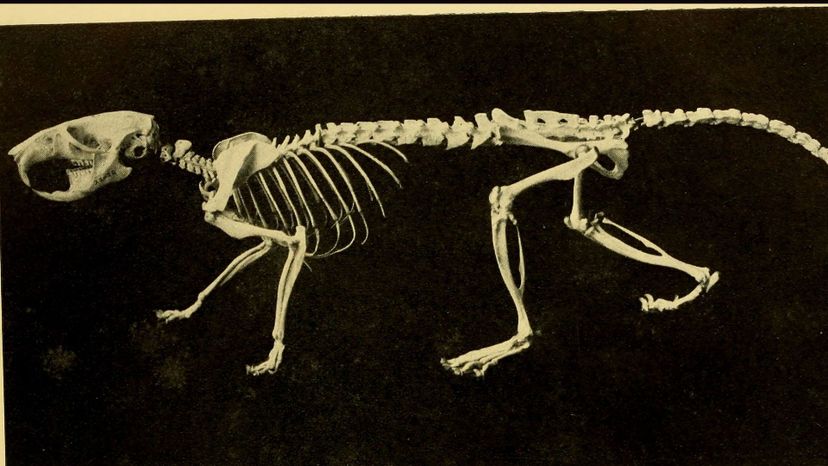
Discovered in China in 2013, this fossil looks like an early rat or chipmunk. Named rugosodon eurasiaticus, it's around 160 million years old and represents one of the earliest known examples of small mammal fossils.
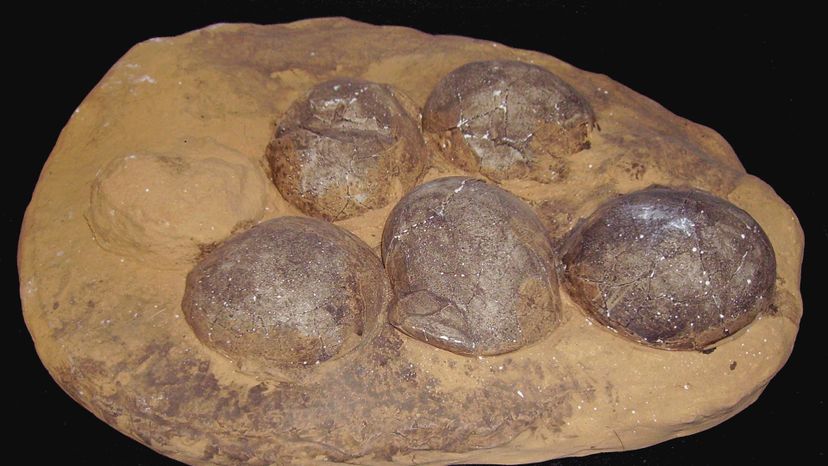
When scientists found the first fossilized dinosaur eggs in 1859, they assumed they were old bird eggs. It wasn't until the 20th century that people began to realize those eggs came from dinosaurs. The oldest known examples date to the Jurassic era, and are around 160 million years old.
Advertisement
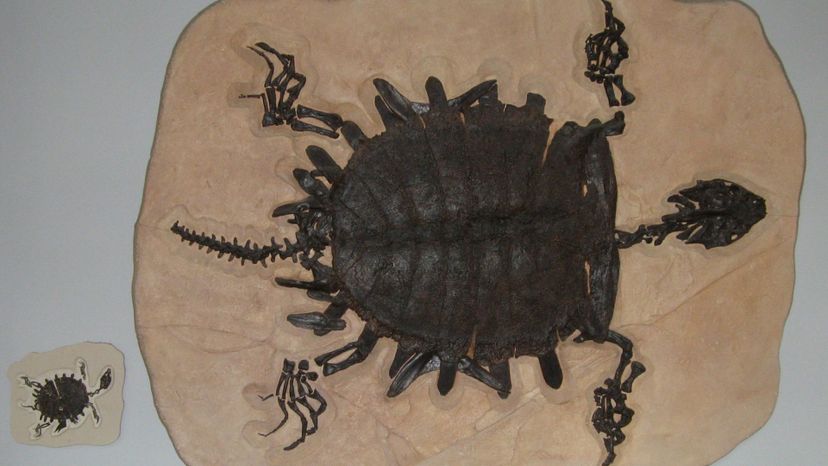
In 2018, scientists in China discovered something amazing -- a 228 million year old turtle fossil, without a shell. This discovery taught the scientific community a great deal about the evolution of this reptile.
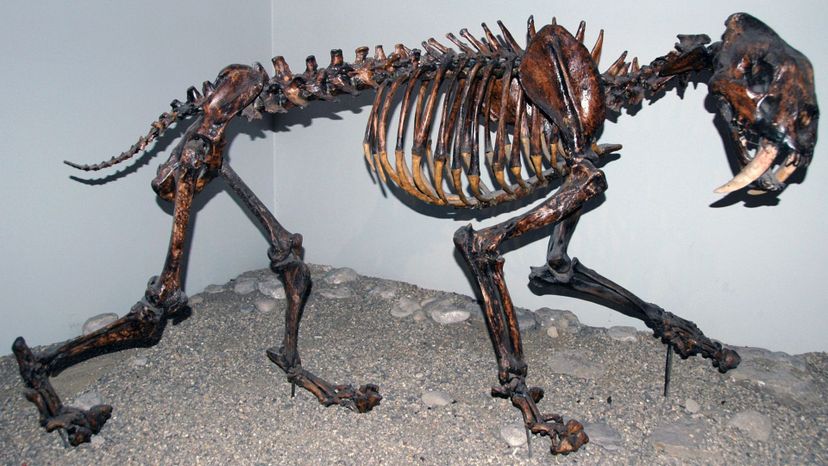
The oldest saber-toothed cats lived around 5 million years ago, and the species went extinct around 11,000 years ago. Fossils have been found all over the world, including in the United States.
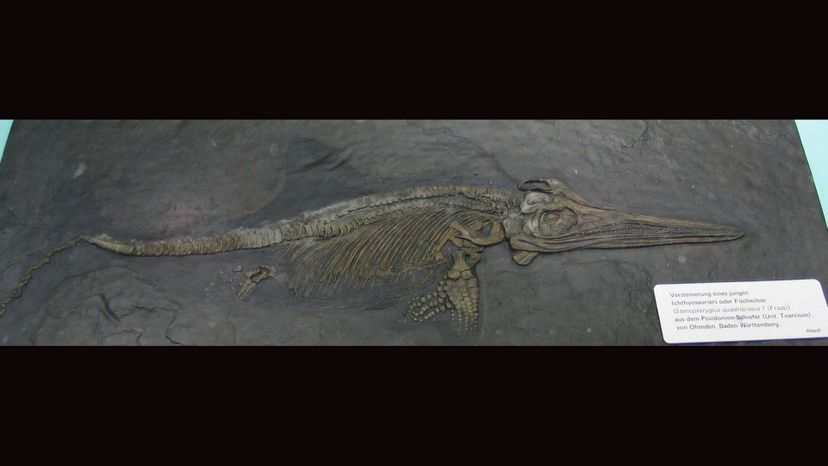
The ichthyosaur is a dinosaur fossil discovered in the UK in 2018. At 85 feet long, it's around 205 million years. It resembles a dinosaur/dolphin hybrid, and is around the size of a blue whale.
Advertisement
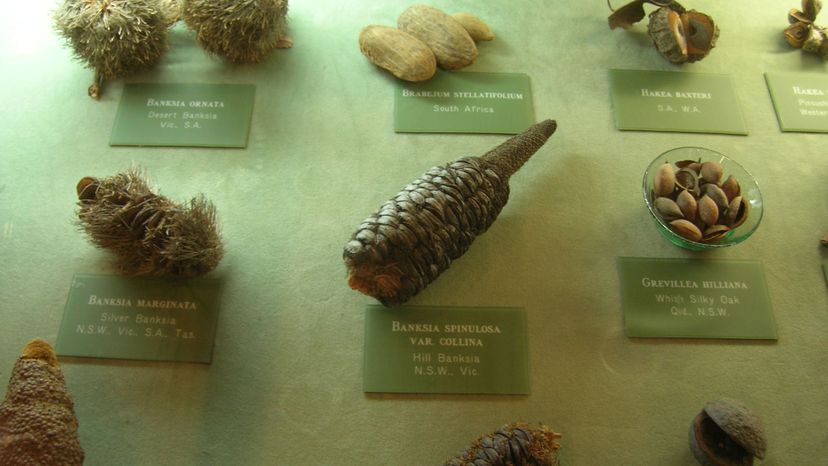
Seed cones are so common that they are popular collectors items among fossil enthusiasts. Interestingly enough, while the oldest seed cone fossils date back around 180 million years, the oldest pine tree twig fossils are only around 140 million years old.
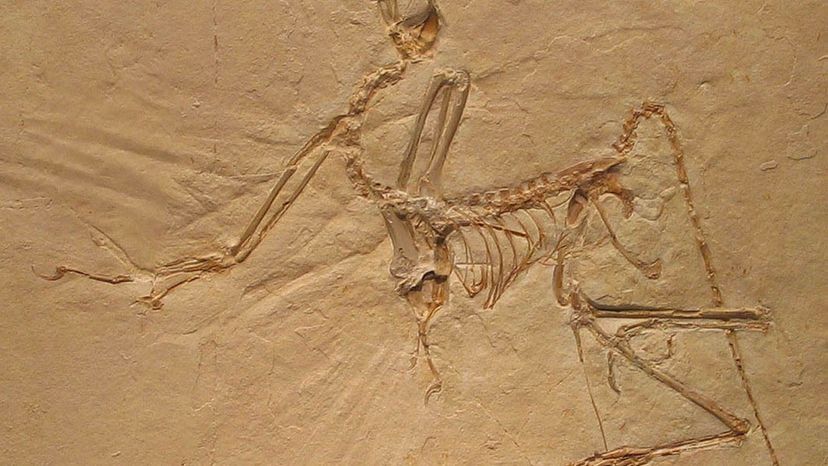
Named protoavis, which means "first bird," this fossil was found in Texas. It dates back to the Triassic period, and though the theory is still controversial, some believe it represents the first example of a true bird fossil, rather than a dinosaur/bird hybrid.
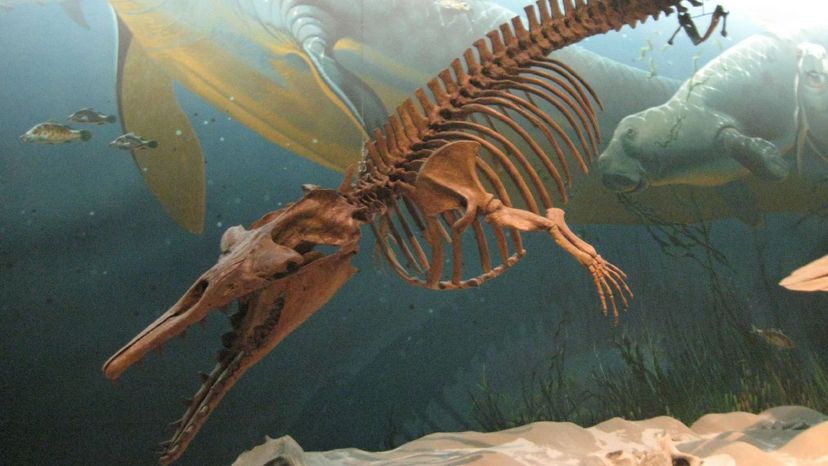
The oldest whale relative fossil was found in South Asia in 2017. About the size of a large dolphin, it's around 36 million years old, and is related to modern hump backs and blue whales.
Advertisement
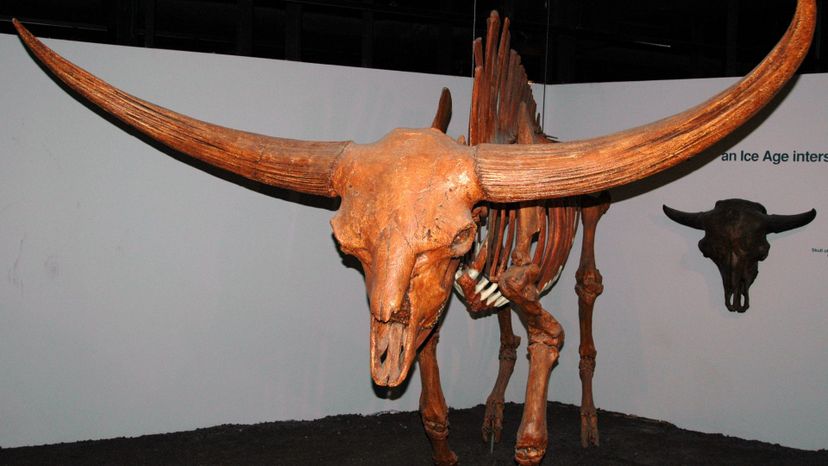
Scientists have discovered a surprisingly high number of bison fossils in the U.S. dating back around 30,000 to 50,000 years ago. In 2017, partial bison fossils were discovered in metro L.A., which is famous for the La Brea Tar Pits.
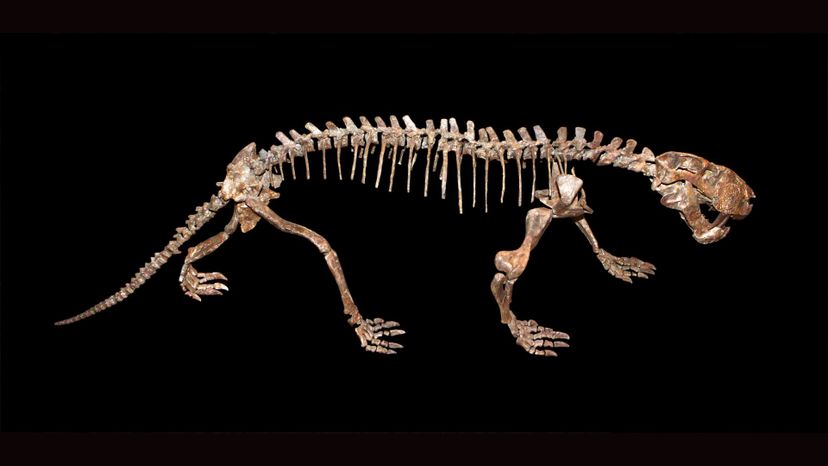
Nyasasaurus parrintoni is one of the oldest known dinosaur fossils known today. Discovered in Tanzania in 2012, this long-necked dino lived around 243 million years ago.
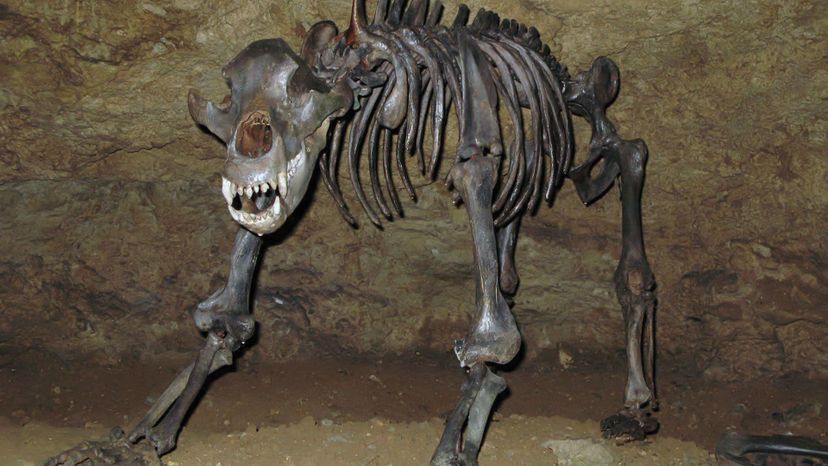
Bear fossils provide fascinating clues to evolution. For example, in 2010 scientists sequenced DNA from a polar bear fossil that dated to at least 110,000 years ago. This sequencing helped scientists understand how exactly the polar bear diverged from the brown bear over time.
Advertisement
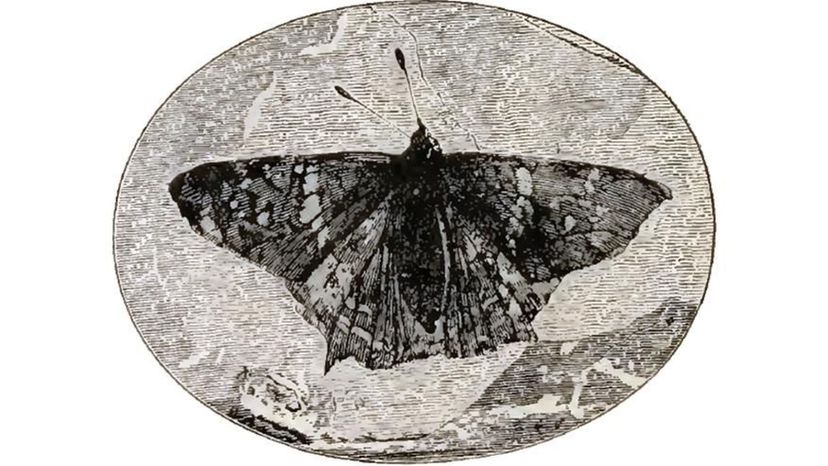
The oldest known butterfly fossil was found in Germany in 2018. It's around 200 million old -- which is around 70 million years older than the oldest known flower. This discovery forced scientists to develop new theories around butterfly pollination.
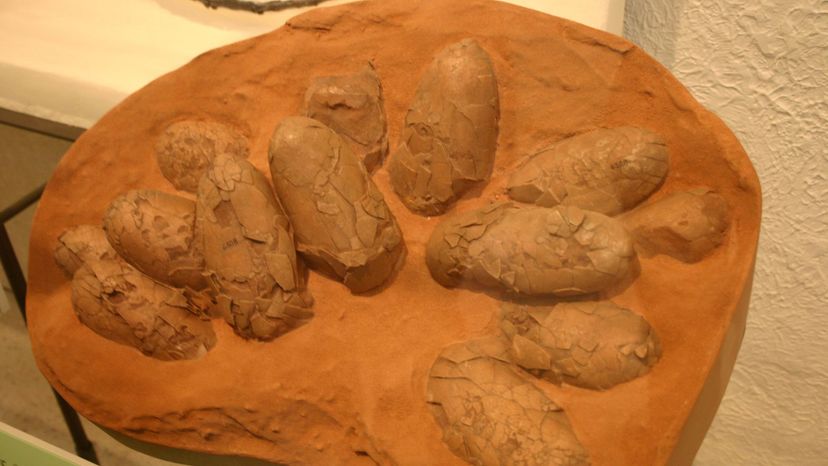
Fossilized fish eggs can be tough to distinguish from fossilized reptile eggs. When they are found still inside of a fish fossil, however, the results are much easier to study. The oldest fish fossils date back to the Devonian or Cenozoic era.
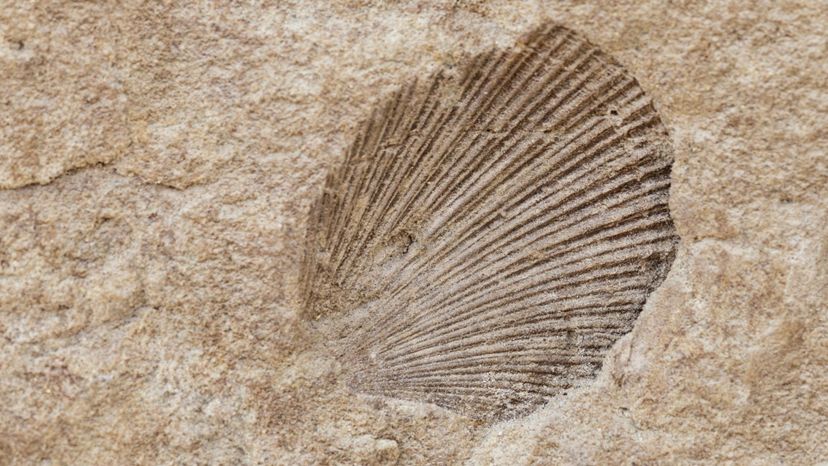
Mollusks are shelled creatures that include mussels, clams and shails. Their fossils are fairly common for two reasons -- first, they have tough shells that fossilize well; second, they often lived in the sea, which is an effective environment for fossilization.
Advertisement
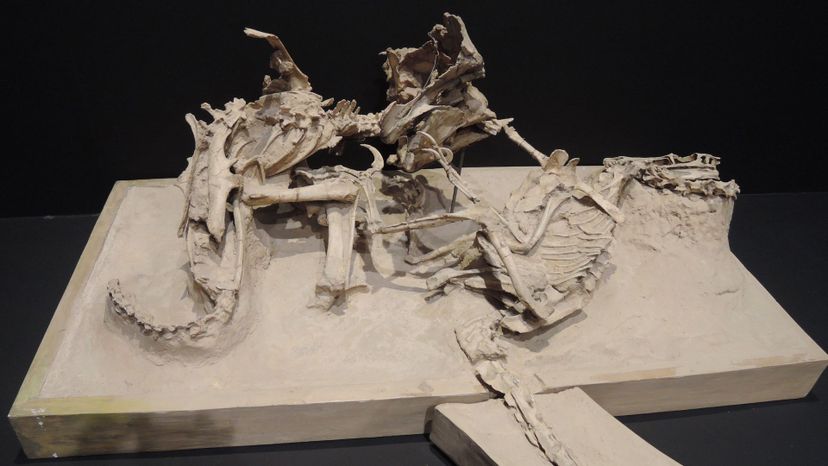
This fossil includes not one, but two dinosaurs. Discovered in 1971 in the Gobi desert, they include a proctoceratops fighting with a velociraptor. The dueling duo date back around 80 million years, and can be viewed at the Mongolian dinosaur museum.
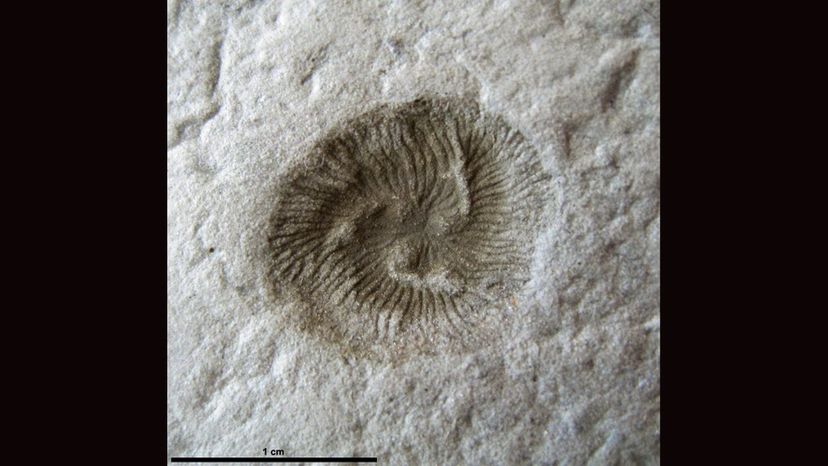
Fungi fossils are rare, and those that are found tend to be very tiny. As of 2018, scientists have found fewer than a dozen fossilized mushrooms, with the oldest example dating back around 115 million years.
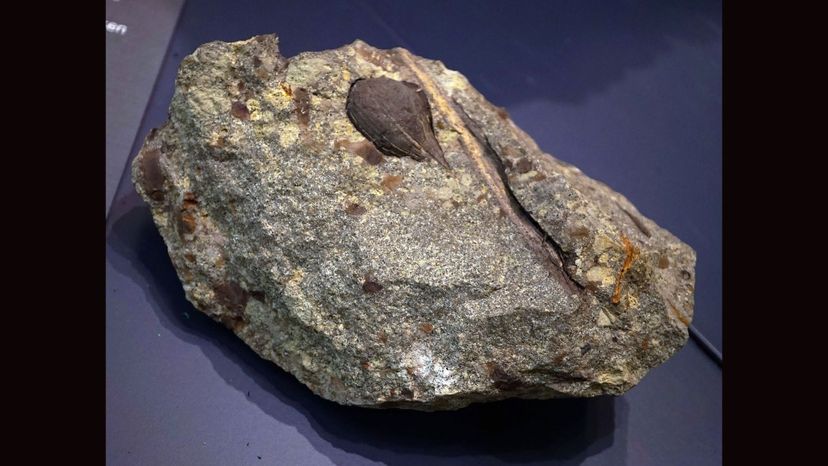
Berry fossils are fairly rare, but in 2017, scientists discovered a 52 million year old example. Part of the nightshade family, which also includes peppers and tomatoes, this berry found in South America is the only example of a fossil in this group found to date.
Advertisement
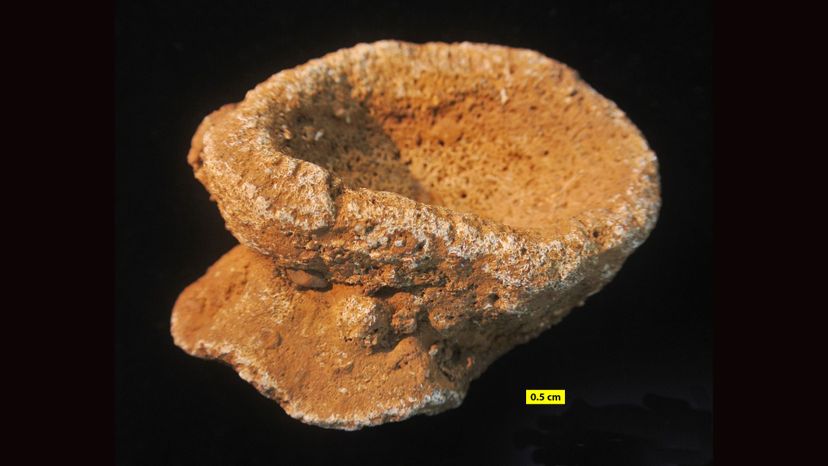
Scientists date the sponge to somewhere between 485 and 760 million years ago. The oldest known fossilized sponge, measuring only a single mm wide and high, is around 600 million years old.
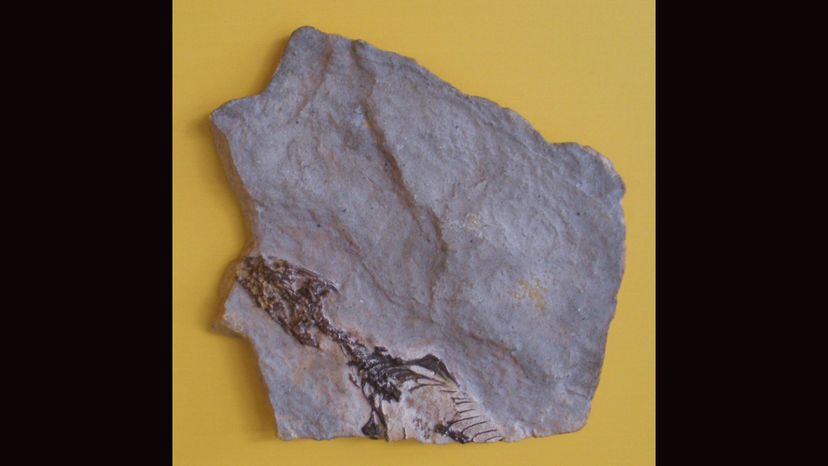
A 240 million year old lizard fossil named megachirella wachtleri made headlines when it was discovered in the Alps. This lizard fossil is around 75 million years older than other lizards and snakes, forcing scientists to rethink reptile evolution.
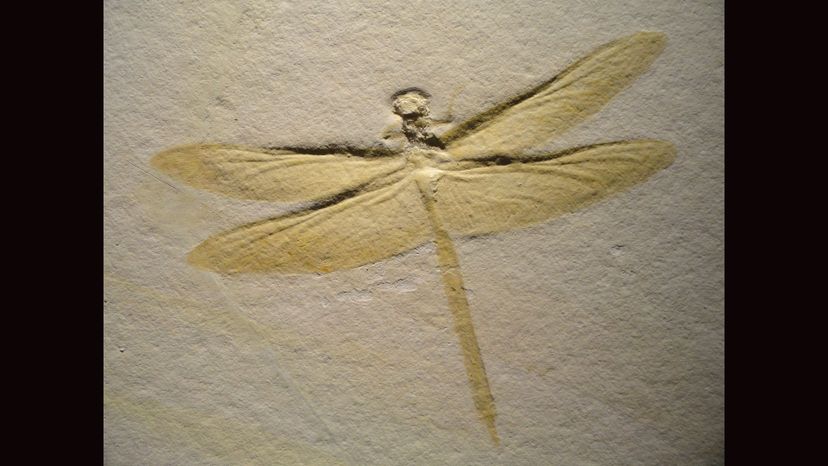
Modern dragonflies have around a four-inch wingspan. A fossil found in Oklahoma in 1940 indicates that this species may have been much larger in the past. Dated to around 248 million years old or more, this meganeuropsis americana dragonfly has a six-inch wingspan.
Advertisement
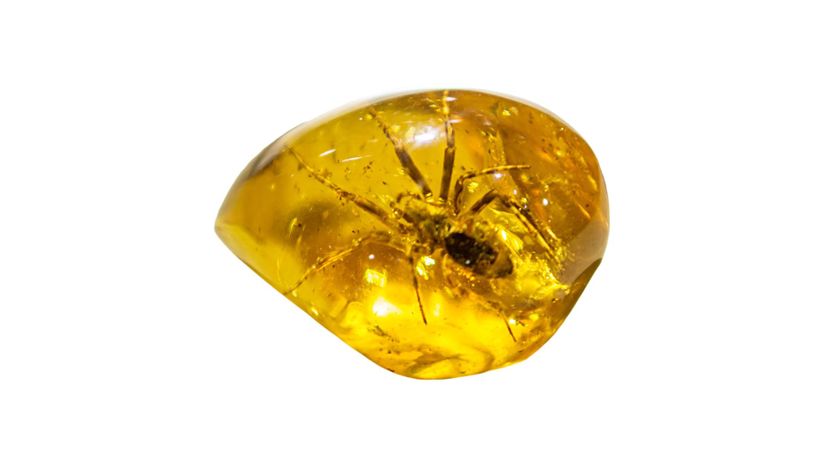
In 2018, scientists in Myanmar found a spider-like fossil that was estimated at 100 million years old. Known as chimerarachne yingi, this four-legged spider had fangs and a tail, and provided important clues to arachnid evolution.
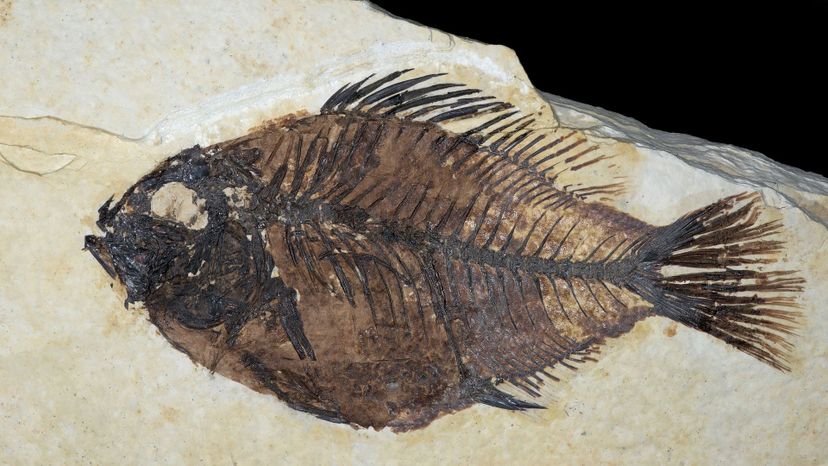
Because the sea bed is helpful for fossil formation, examples of the priscacara liops -- or perch fish -- are common. The Green River Formation in the Rocky Mountains is a particularly wealthy source of fish fossils.
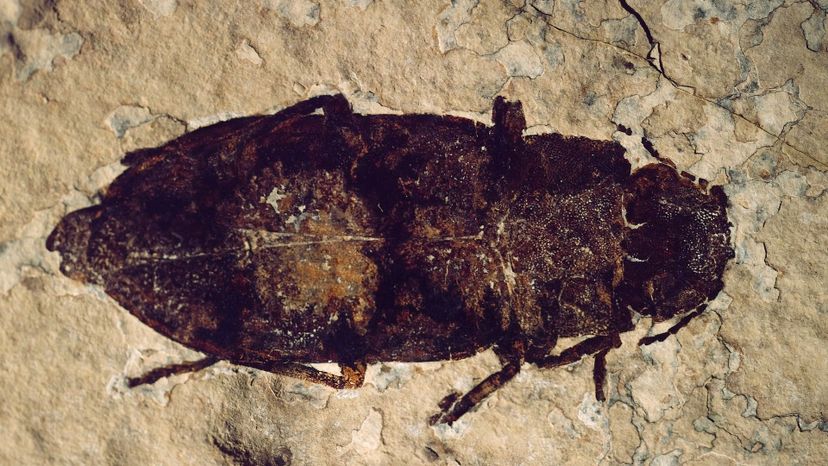
Given their small size and light weight, ant fossils are fairly rare. Examples of these insects can be imprinted in rock or captured in amber, and the oldest ant fossils date back around 100 million years.
Advertisement
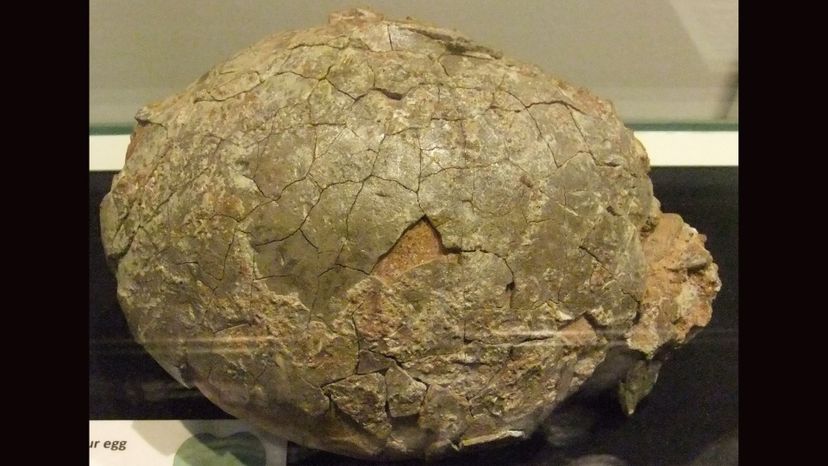
Fossilized reptile eggs can be hard to distinguish from fish eggs, but a 1999 example found in Canada provided critical clues for scientists - because the eggs were still inside the turtle. A mother turtle who died before laying her eggs left behind fossilized eggs dating back around 75 million years.
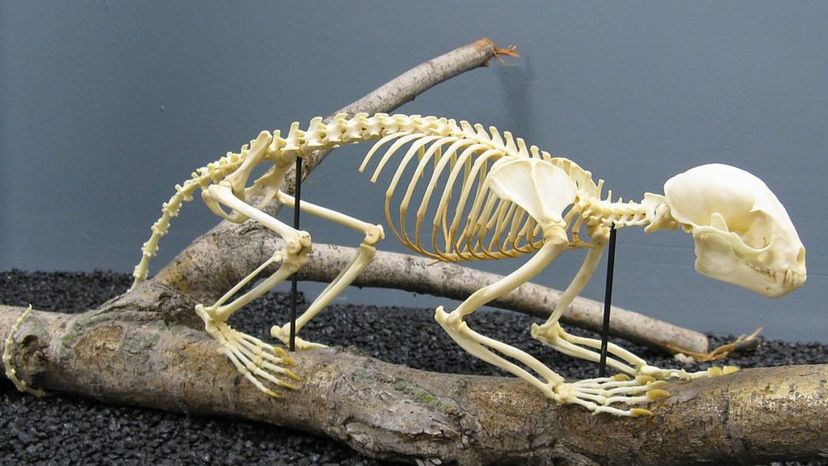
Most raccoon fossils known today are around 10,000 years ago, particularly those found in North America. Older examples, especially partial ones, exist, as raccoons and their relatives may have been around for as long as 25 million years.
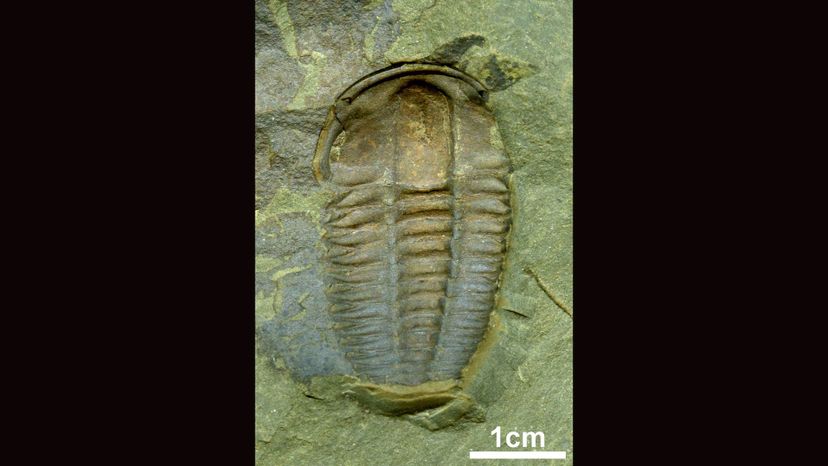
No, the cockroach isn't as old as you think -- but it's not spring chicken either. Though cockroach-like ancestors date back around 300 million years, the oldest known cockroach fossil is between 125 and 140 million years old.
Advertisement
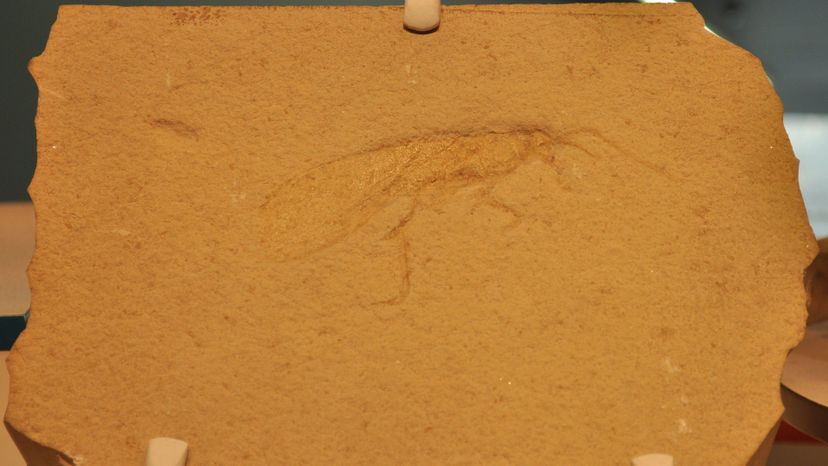
Grasshoppers are part of the animal order orthoptera, which first appeared around 300 million years ago. The oldest grasshopper fossils are versions with wings that were found in Germany in 2008, and date to around 115 million years ago.